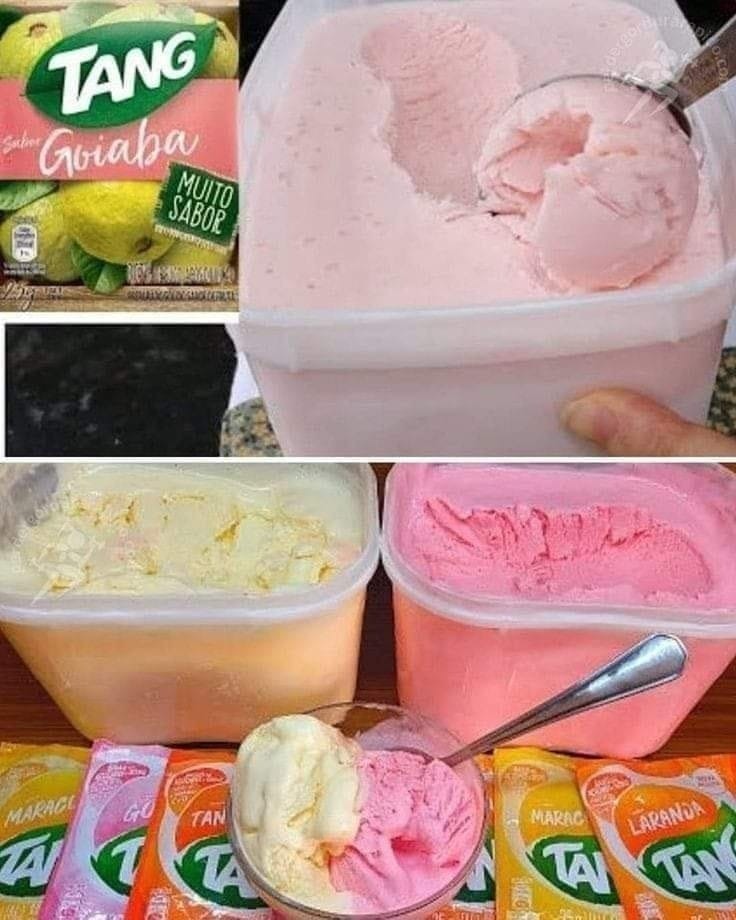ADVERTISEMENT
Making ice cream at home has several benefits.
Better Substitutes: Changes to the components might result in healthier options.
Personalization Choices: Adjust the recipe to your nutritional needs and personal tastes.
Creaminess: An Explanation
Understanding the function of each component is necessary to get the ideal creaminess:
Act of Balance: A creamy texture is achieved by using the proper amounts of condensed milk and cream.
Chilling Process: Smoother consistency is achieved by using proper freezing processes, which stop ice crystals from forming.
Variations in Flavor
Improve the quality of your ice cream by experimenting with novel flavors:
It’s encouraged to try experimenting by adding crumbled cookies, caramel swirls, or fresh fruit to give it a unique touch.
Unexpected Combinations: Use inventive taste combinations to unleash your creativity.
Serving Ideas
Show off your handcrafted item with style:
Presenting Artfully: Use ornamental cones or bowls to create a beautiful visual effect.
Top It Off: Add sprinkles, chocolate sauce, or whipped cream as toppings to make the delicacy even better.
Reasons to Make Your Own Ice Cream
In addition to the delight of creating your own treat, making your own ice cream has the following advantages:
Quality Assurance: Be aware of every ingredient in your dessert to guarantee its quality and freshness.
Expense-effectiveness: It might be less expensive to make your own ice cream than to buy expensive brands.
Typical Errors to Steer Clear of
Avoid these mistakes to have a successful ice cream experience:
Selecting the Right components: To improve the finished product, choose premium components.
Overcoming Obstacles: Use our professional advice to troubleshoot problems such as frosty texture or lack of creaminess.
Testimonies
Hear from others who have made this simple ice cream recipe and found it delicious:
Real-Life Experiences: With this delectable delicacy, experience the happiness of those who have achieved achievement.
See how this dish has grown to be a home chefs’ favorite as social proof.
Answers to Common Questions (FAQs)
Q1: For this recipe, is low-fat cream okay to use?
Yes, but remember that it might have an impact on the creaminess. For optimal results, use heavy cream.
Q2: What is the freezing point temperature?
It may take up to six hours, depending on the temperature of your freezer.
Can I exclude the condensed milk that has been sweetened?
Although it’s an essential component for sweetness and creaminess, you may experiment with substitutes like coconut milk.
What are some vegan substitutes?
Of course! Replace condensed milk with coconut condensed milk and heavy cream with coconut cream.
Q5: Do I need an electric mixer to create this?
Sure, but it takes more work. Beat with a fork until stiff peaks form.
Troubleshooting Manual
Having problems? These are some fast fixes:
Ice Crystals: Before serving, let the ice cream stand at room temperature for a few minutes.
Absence of Creaminess: Before adding additional ingredients, make sure the cream has been beaten to firm peaks.
In summary
To sum up, making your own ice cream at home is a satisfying process. You can make a dessert that tastes better than store-bought alternatives with only four ingredients. Accept the imagination, play around with flavors, and take pleasure in creating a dessert that suits your tastes.
FAQs
What happens if my electric mixer breaks?
Even if an electric mixer is practical, a manual whisk may also produce firm peaks. It simply takes a little more work.
Can I reduce the amount of sugar?
Yes, you may change the sweetness by experimenting with different sweeteners or lowering the quantity of condensed milk that has been sweetened.
How much time may be spent storing homemade ice cream?
It may be kept in the freezer for up to two weeks if kept in an airtight container.
Is it possible to double the recipe?
Of course! For a bigger quantity, feel free to double or quadruple the ingredients.
Can I flavor using a different extract?
Of course! Try other extracts, such as mint or almond, to develop distinctive taste profiles.
ADVERTISEMENT
